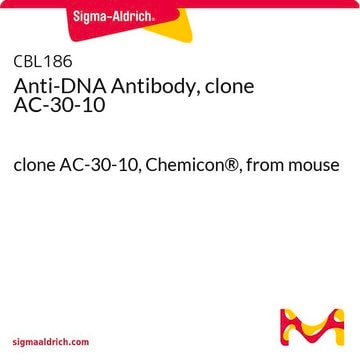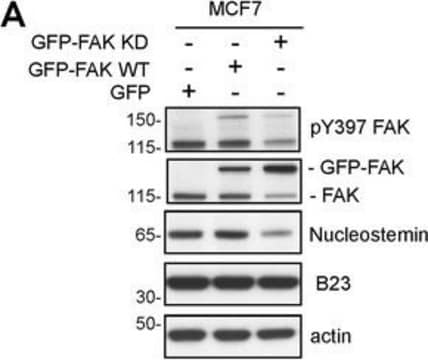MABE1134
Anti-dsRNA Antibody, clone rJ2
culture supernatant, clone rJ2, from mouse
Synonyme(s) :
Double-stranded RNA
About This Item
IF
immunofluorescence: suitable
Produits recommandés
Source biologique
mouse
Forme d'anticorps
culture supernatant
Type de produit anticorps
primary antibodies
Clone
rJ2, monoclonal
Espèces réactives
virus
Conditionnement
antibody small pack of 25 μL
Technique(s)
immunocytochemistry: suitable
immunofluorescence: suitable
Isotype
IgG2aκ
Modification post-traductionnelle de la cible
unmodified
Description générale
Spécificité
Immunogène
Application
Inflammation & Immunology
Qualité
Immunocytochemistry Analysis: A 1:60 dilution of this antibody detected dsRNA in Dengue virus infected A549 cells.
Forme physique
Stockage et stabilité
Autres remarques
Clause de non-responsabilité
Vous ne trouvez pas le bon produit ?
Essayez notre Outil de sélection de produits.
Code de la classe de stockage
10 - Combustible liquids
Classe de danger pour l'eau (WGK)
WGK 3
Certificats d'analyse (COA)
Recherchez un Certificats d'analyse (COA) en saisissant le numéro de lot du produit. Les numéros de lot figurent sur l'étiquette du produit après les mots "Lot" ou "Batch".
Déjà en possession de ce produit ?
Retrouvez la documentation relative aux produits que vous avez récemment achetés dans la Bibliothèque de documents.
Notre équipe de scientifiques dispose d'une expérience dans tous les secteurs de la recherche, notamment en sciences de la vie, science des matériaux, synthèse chimique, chromatographie, analyse et dans de nombreux autres domaines..
Contacter notre Service technique








